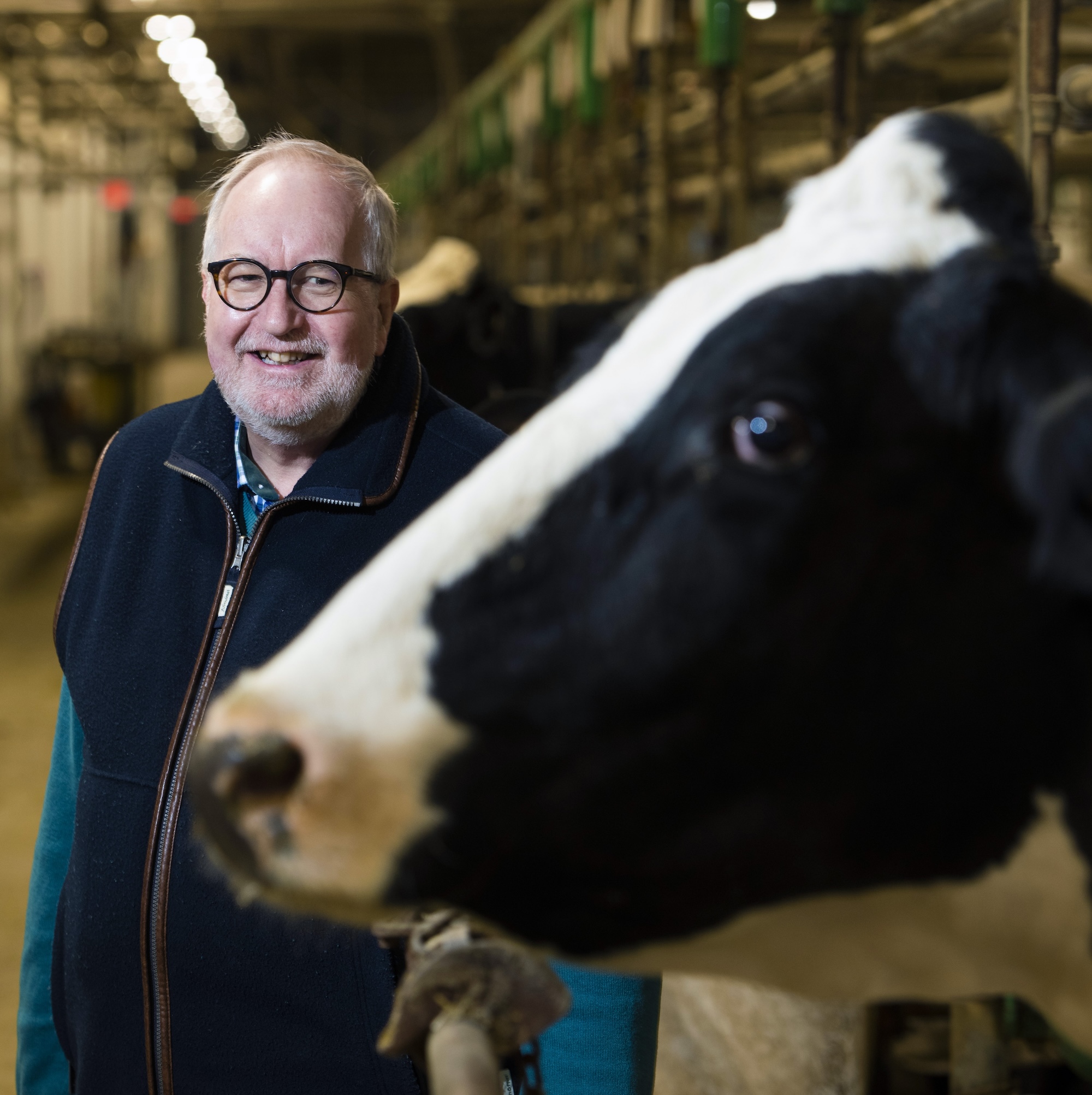DNA technology helps breed cattle to benefit earth and beef industry
Anna Schmidt - 23 July 2024
At Livestock Gentec, researchers begin each project the same way — with a road trip. They head out of the city, gathering at farm gates and kitchen tables to ask Canadian livestock producers one question: “What keeps you up at night?”
“Then we look for answers. And if there aren’t answers, we ask, ‘Is there an opportunity to research and develop new solutions?’ ” says Graham Plastow, a Gentec researcher and professor emeritus in the University of Alberta’s Faculty of Agricultural, Life & Environmental Sciences.
Gentec is an ASTech-award-winning Alberta Innovates centre based at the U of A that builds bridges between academia and industry. Founded in 2010 as a partnership between the university and Agriculture and Agri-Food Canada, Gentec applies researchers’ expertise in genomics to help producers “see under the hide” of their animals and breed for desired genes that increase profitability and sustainability.
Now, thanks to Alberta-based Results Driven Agriculture Research (RDAR), Gentec is tackling one of Canadian beef producers’ most insomnia-inducing obstacles: paying for DNA testing to improve the breeding efficiency of their herds. In June, RDAR, through the Sustainable Canadian Agricultural Partnership, a program which is funded by the governments of Alberta and Canada, delivered $2.2 million to Gentec for a project to cover 50 per cent of the cost for producers who sign up for genotyping.
“Through the incentivized process, we can demonstrate that these genomic tools add a lot of value for the producer and the beef industry,” says John Basarab, ‘76 BSc (Agric), ‘81 PhD, Gentec CEO and principal investigator on the project.
Over the next four years, Gentec will test the DNA of 40,000 cattle and provide producers with clear reports that rank the animals on desirable traits such as fertility, lifetime productivity, feed efficiency and carcass quality. This will allow producers to breed cattle that eat less and produce less methane, reducing greenhouse gas emissions while maximizing profits and sustainability.
“Sustainability means that producers can exist over the long term, producing protein for Canada and the world, and doing it efficiently,” says Basarab. “Food security is a growing and serious issue. People are paying more than they can afford. … If you use genetic selection properly, you’re able to produce more with less.”
Producers will report their results to Gentec, allowing researchers to improve the accuracy of their genomic tools to support the beef industry into the future.
“Because of our collaborations, because of the trust, because of our reputation around the world, we’re able to work with the very best people,” says Plastow. “Industry feels a part of it. They own the research. They own the solution.”

Graham Plastow

John Basarab